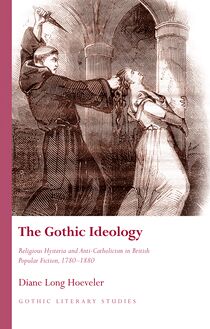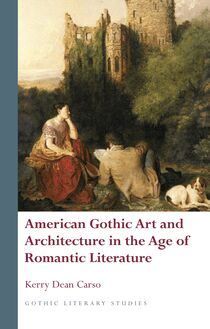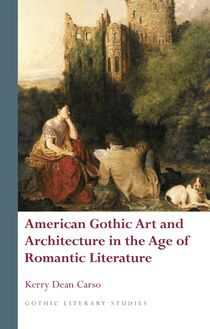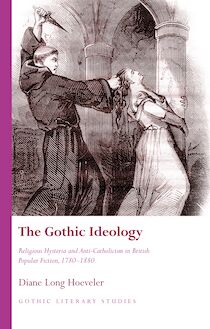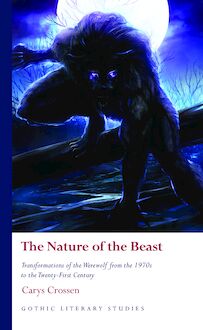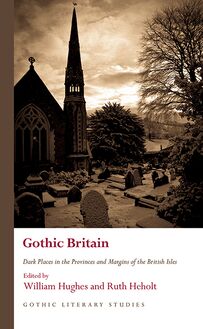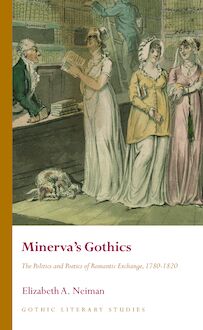-
 Univers
Univers
-
 Ebooks
Ebooks
-
 Livres audio
Livres audio
-
 Presse
Presse
-
 Podcasts
Podcasts
-
 BD
BD
-
 Documents
Documents
-
- Cours
- Révisions
- Ressources pédagogiques
- Sciences de l’éducation
- Manuels scolaires
- Langues
- Travaux de classe
- Annales de BEP
- Etudes supérieures
- Maternelle et primaire
- Fiches de lecture
- Orientation scolaire
- Méthodologie
- Corrigés de devoir
- Annales d’examens et concours
- Annales du bac
- Annales du brevet
- Rapports de stage
La lecture à portée de main
Vous pourrez modifier la taille du texte de cet ouvrage
Découvre YouScribe en t'inscrivant gratuitement
Je m'inscrisWilkie Collins, Medicine and the Gothic , livre ebook
Découvre YouScribe en t'inscrivant gratuitement
Je m'inscrisEn savoir plus
Vous pourrez modifier la taille du texte de cet ouvrage
En savoir plus

Description
matters developed in his writing through exploration of his revisions of
the late eighteenth-century Gothic novel from his first sensation
novels to his last novels of the 1880s. Throughout his career, Collins
made changes in the prototypical Gothic scenario. The aristocratic
villains, victimized maidens and medieval castles of classic Gothic
tales were reworked and adapted to thrill his Victorian readership. With
the advances of neuroscience and the development of criminology as a
significant backdrop to most of his novels, Collins drew upon
contemporary anxieties and increasingly used the medical to propel his
criminal plots. While the prototypical castles were turned into modern
medical institutions, his heroines no longer feared ghosts but the
scientist’s knife. This study hence underlines the way in which
Collins’s Gothic revisions increasingly tackled medical questions, using
the medical terrain to capitalize on the readers’ fears. It also
demonstrates how Wilkie Collins’s fiction reworks Gothic themes and
presents them through the prism of contemporary scientific, medical and
psychological discourses, from debates revolving around mental
physiology to those dealing with heredity and transmission. The book’s
structure is chronological covering a selection of texts in each
chapter, with a balance between discussion of the more canonical of
Collins’s texts such as The Woman in White, The Moonstone and Armadale
and some of his more neglected writings.
Sujets
Informations
| Publié par | University of Wales Press |
| Date de parution | 01 septembre 2009 |
| Nombre de lectures | 0 |
| EAN13 | 9781783163731 |
| Langue | English |
Informations légales : prix de location à la page 0,1074€. Cette information est donnée uniquement à titre indicatif conformément à la législation en vigueur.
Extrait
WILKIE COLLINS, MEDICINE AND THE GOTHIC
S ERIES P REFACE
Gothic Literary Studies is dedicated to publishing groundbreaking scholarship on Gothic in literature and film. The Gothic, which has been subjected to a variety of critical and theoretical approaches, is a form which plays an important role in our understanding of literary, intellectual and cultural histories. The series seeks to promote challenging and innovative approaches to Gothic which question any aspect of the Gothic tradition or perceived critical orthodoxy.
Volumes in the series explore how issues such as gender, religion, nation and sexuality have shaped our view of the Gothic tradition. Both academically rigorous and informed by the latest developments in critical theory, the series provides an important focus for scholastic developments in Gothic studies, literary studies, cultural studies and critical theory. The series will be of interest to students of all levels and to scholars and teachers of the Gothic and literary and cultural histories.
S ERIES E DITORS
Andrew Smith, University of Glamorgan
Benjamin F. Fisher, University of Mississippi
E DITORIAL B OARD
Kent Ljungquist, Worcester Polytechnic Institute Massachusetts
Richard Fusco, St Joseph s University, Philadelphia
David Punter, University of Bristol
Chris Baldick, University of London
Angela Wright, University of Sheffield
Jerrold E. Hogle, University of Arizona
Wilkie Collins, Medicine and the Gothic
Laurence Talairach-Vielmas
Laurence Talairach-Vielmas, 2009
All rights reserved. No part of this book may be reproduced in any material form (including photocopying or storing it in any medium by electronic means and whether or not transiently or incidentally to some other use of this publication) without the written permission of the copyright owner except in accordance with the provisions of the Copyright, Designs and Patents Act 1988 or under the terms of a licence issued by the Copyright Licensing Agency Ltd, Saffron House, 6-10 Kirby Street, London, EC1N 8TS. Applications for the copyright owner s written permission to reproduce any part of this publication should be addressed to the University of Wales Press, 10 Columbus Walk, Brigantine Place, Cardiff, CF10 4UP.
www.uwp.co.uk
British Library Cataloguing-in-Publication Data
A catalogue record for this book is available from the British Library.
ISBN 978-0-7083-2223-9
e-ISBN 978-1-7831-6373-1
The right of Laurence Talairach-Vielmas to be identified as author of this work has been asserted by her in accordance with sections 77, 78 and 79 of the Copyright, Designs and Patents Act 1988.
Cover image: British Library
In loving memory of my grandfather, Jean Talairach 1911-2007
C ONTENTS
Acknowledgements
Introduction: A creepy sensation down the spine
1 Sensation is [his] Frankenstein : Monomaniac Obsessions in Basil , Mad Monkton and The Woman in White
2 The Substance and the Shadow: Invisibility and Immateriality in Armadale
3 My grave is waiting for me there : Physiological Prisons in The Moonstone
4 Transformation, Epilepsy and Late Victorian Anxieties in Poor Miss Finch
5 The Shadows of the Past: Digging Out Hidden Memory in The Haunted Hotel
6 Mad Scientists: Jezebel s Daughter and Heart and Science
7 The Quest for Knowledge in I Say No
8 Born To Kill: the Haunting Taint in The Legacy of Cain
Notes
Bibliography
A CKNOWLEDGEMENTS
As a child I used to watch my grandfather put together polystyrene pieces to fashion a giant brain designed to be exhibited at the Paris Science Museum. As a brain surgeon and a specialist in the study of epilepsy, he would also take me to his laboratory at Sainte Anne s Hospital where monkeys were kept in cages and experimented upon. The cruelty I imagined was going on there fuelled my imagination and prompted my interest in medical experimentation and surgery. But as a medical student the sight of blood and corpses ready for dissection quickly made me decide to choose literary studies instead. Yet I soon obsessionally focused on representations of the medical and anxieties related to medical figures, as if to conjure up the moments I had spent by the side of my grandfather, observing him trying to fathom the mysteries of the human brain and map out the cortex or listening to his stories of surgical operations.
This work is certainly the fruit of my early fascination for the medical world. It is also the fruit of over ten years of research onWilkie Collins. The book was completed during a period of sabbatical leave from the University of Toulouse (UTM) during the spring term of 2008, and I am very grateful to the University of Toulouse for making this possible. I have also benefited from a SAES/AFEA grant during the period of research. Though I have incurred debts to more people than I can possibly name here, I am glad to have the opportunity to acknowledge some of them individually. I am very grateful to Andy Smith, who believed in this project from the start, and to the anonymous reader whose comments improved my book. I have been lucky to benefit from Graham Law s advice and help on the sections on Jezebel s Daughter and Heart and Science , and I would also like to thank Jenny BourneTaylor and Steve Farmer who offered comments when I submitted a shorter version of chapter 6 for publication to The Wilkie Collins Society Journal . I am indebted to Lillian Nayder, Vic Sage, Mariaconcetta Constantini and Natalie Cole for their insight, advice and bibliographical information which helped shape the manuscript. I also wish to thank Mike Hollington whose buoyant enthusiasm for research is always contagious and whose generosity and encouragement I treasure. To Wendy Harding and Ellen Levy, who read parts of the manuscript in its early stages, and Elizabeth Mullen who patiently proofread the entire manuscript, many thanks. Finally, as always, my deepest thanks go to my husband who provided loving support at every stage of this project and has ever been understanding.
Earlier versions of chapters 2 and 5 appeared as book chapters in the following publications: The shadow and the substance: invisibility and immateriality in Wilkie Collins s Armadale , in Mariaconcetta Constantini (ed.), Armadale: Wilkie Collins and the Dark Threads of Life (Rome: Aracne, 2009); Memory as a palimpsest in Wilkie Collins s The Haunted Hotel (1879) , in Darby Lewes (ed.), Double Visions: Eighteenth and Nineteenth-Century Palimpsests (Lanham, Boulder, New York, Toronto, Plymouth: Rowman & Littlefield and Lexington Books, 2008), pp. 149-61. Chapter 6 originally appeared as a shorter paper, Mad scientists and chemical ghosts: Wilkie Collins s materialist supernaturalism , in The Wilkie Collins Society Journal 7 (2004), 3-20. Chapters 3, 5 and 7 include portions of papers given at international conferences: Spreading the germs of sensationalism: the diseased texts of Victorian literature , ARPF (Association for Research in Popular Fictions) conference, Infection and Contamination, Edge Hill College, 2002; Venice and the shadows of the past: digging out hidden memory in Wilkie Collins s The Haunted Hotel (1879) , Dickens, Victorian Culture and Italy, Genoa, 2007; Texts and images in Wilkie Collins s I Say No (1884) , International Gothic Association, Gothic N.E.W.S., Aix-en-Provence, 2007. An abridged version of chapter 1 was published in the proceedings of the conference Mountains in the English-Speaking World held in Toulouse in 2007: On the very brink of a precipice : landscapes of the mind in Wilkie Collins s Basil (1852) , in Fran oise Besson and Catherine Lanone (eds), Anglophonia/Caliban 23 (2008), issue on La Montagne entre image et langage dans les territoires anglophones , 183-90. I am grateful to the editors of these books and journals for permission to use the material here.
Introduction: A creepy sensation down the spine 1
History discloses how the mind passes from wonderment at the miraculous to the discernment of order, from sorcery to science. 2
Twenty-first century researchers digging out crumbling Victorian medical essays may well give a start when they encounter a literary review buried in a medical journal for the first time. But if today the conflation of the medical and literary fields may seem surprising, it was nonetheless common practice in Victorian England: while scientific essays warning young female readers about the dangers of fiction flourished in literary journals, doctors also offered their own point of view on literature in medical gazettes. Medical science undoubtedly struck the keynote. The advances in experimental physiology, which aimed to analyse and measure the body s activity, pointed to the body as a source of mystery and wonder, frequently turning medical and scientific figures into wizards using lancets or drugs of all sorts as magic wands.
As a significant instance, the name of Henry Maudsley, the famous Victorian alienist (as the early psychiatrists were called), probably haunted the Victorians many years before his death. In the second half of the nineteenth century, Maudsley was one of the most influential Victorian medical authorities in his field. His definitions of mental processes and mental disease through evolutionary theory were very good illustrations of the period s moral biases. In his Sex in mind and in education , published in 1874 in the literary journal The Fortnightly Review , Maudsley expounded his theories on the female mind and advised girls not to draw too much on their mental resources through intellectual work. 3 But Maudsley could also explain literature in physiological terms and trace literary genius to the bones and marrow of a particular writer. As a case in point, his 1860 essay on Edgar Allan Poe, published in The Journal of Mental Science , 4 revealingly used clinical discourse to analyse the nineteenth-century writer s literary creativity. For Maudsley, Poe s intense aspiration after the ideal worked in tan
-
 Univers
Univers
-
 Ebooks
Ebooks
-
 Livres audio
Livres audio
-
 Presse
Presse
-
 Podcasts
Podcasts
-
 BD
BD
-
 Documents
Documents
-
Jeunesse
-
Littérature
-
Ressources professionnelles
-
Santé et bien-être
-
Savoirs
-
Education
-
Loisirs et hobbies
-
Art, musique et cinéma
-
Actualité et débat de société
-
Jeunesse
-
Littérature
-
Ressources professionnelles
-
Santé et bien-être
-
Savoirs
-
Education
-
Loisirs et hobbies
-
Art, musique et cinéma
-
Actualité et débat de société
-
Actualités
-
Lifestyle
-
Presse jeunesse
-
Presse professionnelle
-
Pratique
-
Presse sportive
-
Presse internationale
-
Culture & Médias
-
Action et Aventures
-
Science-fiction et Fantasy
-
Société
-
Jeunesse
-
Littérature
-
Ressources professionnelles
-
Santé et bien-être
-
Savoirs
-
Education
-
Loisirs et hobbies
-
Art, musique et cinéma
-
Actualité et débat de société
- Cours
- Révisions
- Ressources pédagogiques
- Sciences de l’éducation
- Manuels scolaires
- Langues
- Travaux de classe
- Annales de BEP
- Etudes supérieures
- Maternelle et primaire
- Fiches de lecture
- Orientation scolaire
- Méthodologie
- Corrigés de devoir
- Annales d’examens et concours
- Annales du bac
- Annales du brevet
- Rapports de stage

